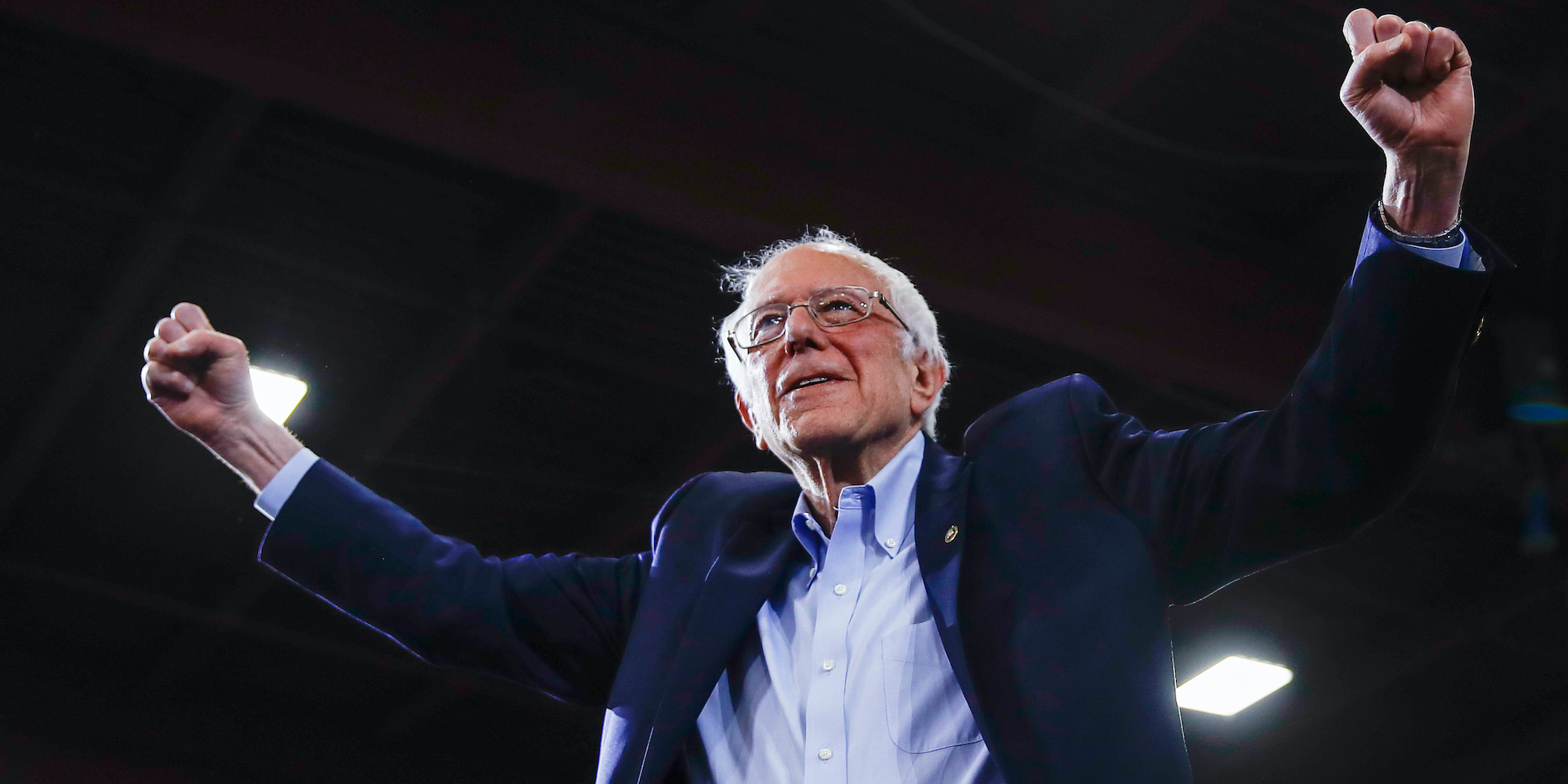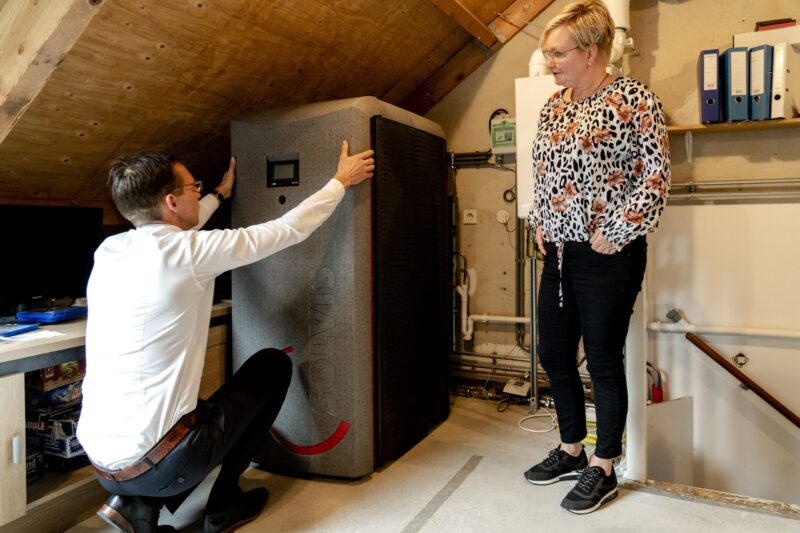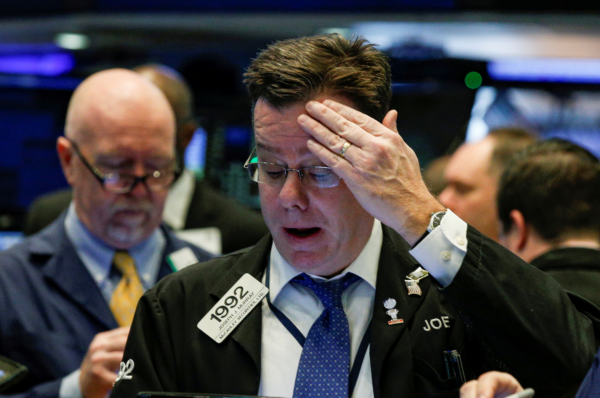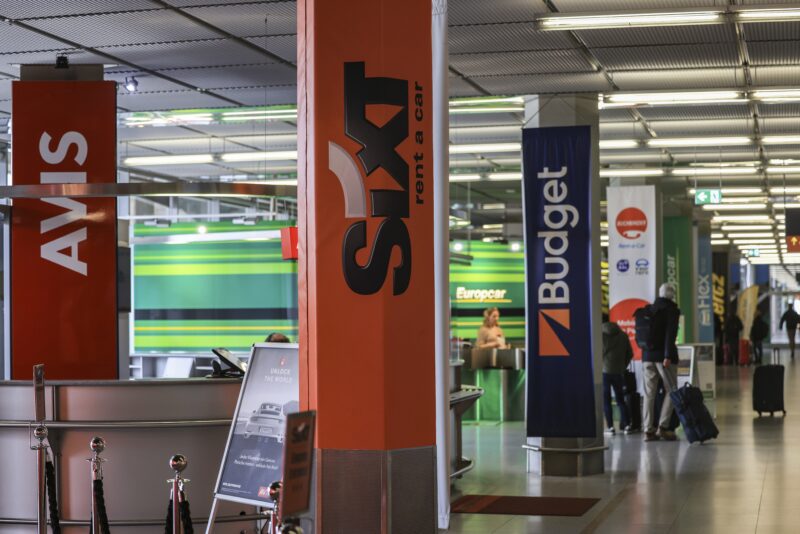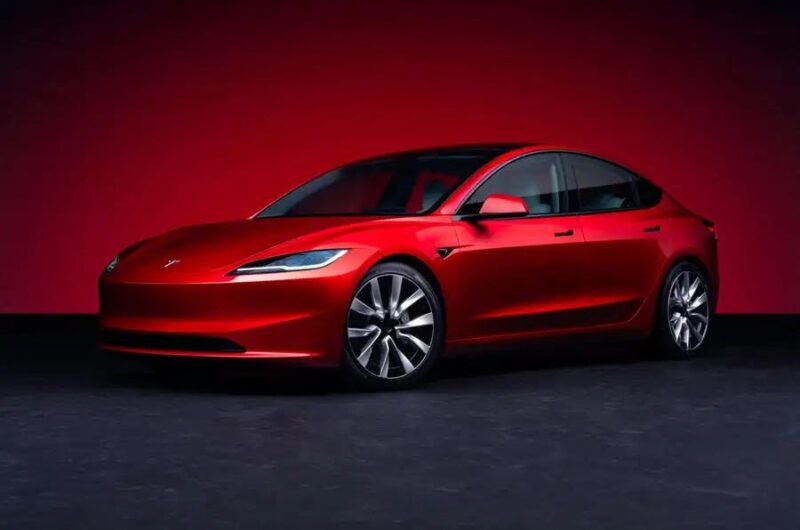- Michigan’s primary on Tuesday could be do-or-die for Sen. Bernie Sanders of Vermont as he dukes it out with former Vice President Joe Biden for the Democratic presidential nomination.
- Michigan has the most pledged delegates at stake Tuesday. Demographically, the state is tailor-made for a Sanders victory.
- The Vermont senator clinched a narrow win in Michigan in 2016 in a stunning upset over former Secretary of State Hillary Clinton.
- Sanders is keenly aware of the state’s importance to his candidacy this time.
- He scrapped planned events across the US and poured all his resources into Michigan after disappointing losses on Super Tuesday.
- Visit Business Insider’s homepage for more stories.
Tuesday could be do-or-die for Sen. Bernie Sanders of Vermont, who’s locked in a bitter fight with former Vice President Joe Biden for the Democratic presidential nomination.
Sanders surged to the front of the pack after a series of victories in the early-voting states of Iowa, New Hampshire, and Nevada. But Biden quickly overtook the progressive firebrand when he won the South Carolina primary and went on to demolish Sanders and the rest of the Democratic field in 10 out of the 14 states that voted last week on Super Tuesday.
This Tuesday’s elections will see voters in six critical states cast their ballots. Among them is Michigan, which has 125 pledged delegates at stake. A candidate needs to win 1,991 delegates to become the Democratic Party’s nominee. Biden leads the field with 602 delegates, compared with 523 for Sanders and two for Rep. Tulsi Gabbard of Hawaii.
A Midwestern, blue-collar state tailor-made for a Sanders victory
Of all the contests Tuesday, Michigan is the biggest in terms of delegates on the table. Behind it is the Washington primary (89 delegates), the Missouri primary (68 pledged delegates), the Mississippi primary (36 delegates), the Idaho primary (20 pledged delegates), and the North Dakota caucuses (14 delegates).
Demographically, Michigan appears to be tailor-made for a Sanders victory. It's a Midwestern state with a large blue-collar population, which Sanders has targeted with his populist message.
The Vermont senator clinched a narrow victory in Michigan in 2016 in a stunning upset over former Secretary of State Hillary Clinton. Losing the state to Biden this time could be a major blow to Sanders' chances of winning the Democratic nomination.
Conversely, winning Michigan could give Sanders the momentum he needs to hit the ground running ahead of a series of vital primaries on March 17, when a whopping 577 delegates are up for grabs.
A huge part of why Sanders won Michigan in 2016 was that young voters turned out in droves. Voters ages 18 to 29 constituted about 19% of the electorate in the 2016 Michigan Democratic primary, which exit polls indicated was almost as large a share of voters as those over 65.
Sanders won 81% of young voters last time, and he and his surrogates have consistently emphasized that he needs similar turnout from that demographic to take on Biden in the primary and President Donald Trump in the general election.
But on Super Tuesday this year, young voters didn't turn out as expected, and that drop-off was one of the main reasons Sanders saw underwhelming results across the board.
Though voters ages 18 to 29 overwhelmingly supported the self-described democratic socialist on Super Tuesday, the group turned out in low numbers.
That immediately raised questions about whether Sanders had the ability to build a large, diverse coalition, as he claimed he'd done after the Nevada caucuses. After Super Tuesday, however, Sanders conceded he still had some work to do.
"Have we been as successful as I would hope in bringing in young people in? And the answer is no," Sanders said at a press conference last Wednesday.
Biden overtakes Sanders in Michigan after his Super Tuesday rout
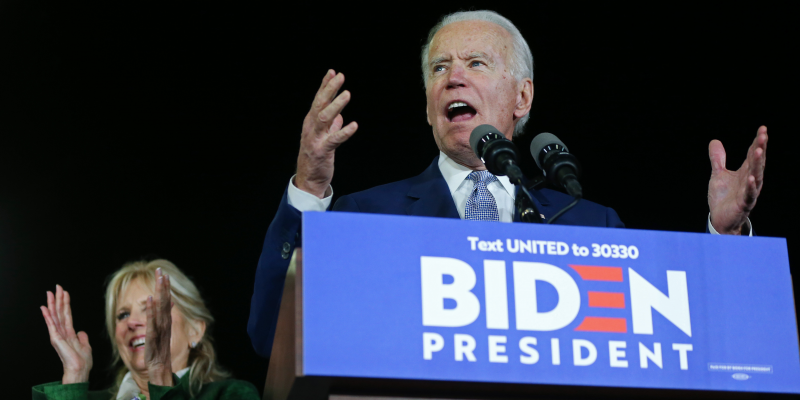
Biden, meanwhile, outperformed polling expectations on Super Tuesday and wiped the floor with the rest of the Democratic field across the South and even in states where he didn't campaign and wasn't expected to win, like Massachusetts and Minnesota.
Biden benefitted from Sen. Amy Klobuchar of Minnesota and former Mayor Pete Buttigieg of South Bend, Indiana, dropping out just before Super Tuesday. Two other candidates dropped out shortly afterward: Sen. Elizabeth Warren of Massachusetts and former Mayor Mike Bloomberg of New York City.
Buttigieg, Klobuchar, and Bloomberg quickly endorsed Biden, consolidating the moderate vote around his candidacy. Warren has declined to endorse anyone so far, but Biden and Sanders are duking it out for her backing.
The former vice president's momentum from Super Tuesday could now translate to a win in Michigan. FiveThirtyEight's average of polls indicates that Sanders had a double-digit lead over Biden in Michigan on Super Tuesday. By Friday, however, Biden was ahead of Sanders - 37.8% to 30% - in the state.
Nationally, a Morning Consult poll released Friday showed Biden crushing Sanders by 16 percentage points.
More than half of the Democratic primary voters in the poll - 54% - said they would vote for Biden, while 38% said they would vote for Sanders.
Sanders was the top choice for 57% of voters under the age of 45, but Biden was the favored candidate for 70% of voters over 45.
The poll was conducted Thursday - after Warren announced she was exiting the 2020 race. It had a margin of error of plus or minus 3 percentage points.
The Morning Consult poll highlights why young voter turnout is so crucial for Sanders as he criss-crosses the country calling for a "political revolution" and skewering the establishment in both the Democratic and Republican parties.
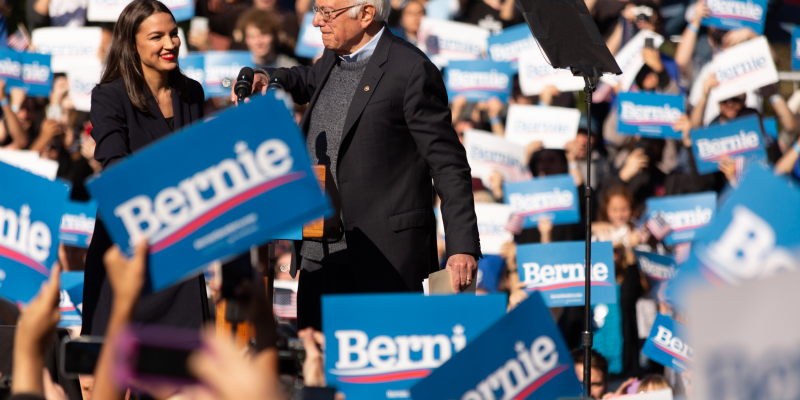
'We need all hands on deck. We got our backs against the wall.'
Sanders is keenly aware of the importance of winning Michigan and driving up voter turnout.
The Washington Post reported Saturday that while Biden campaigned elsewhere, Sanders flew most of his Iowa staff to Michigan following Super Tuesday and had a far more sophisticated ground operation in the state than the former vice president.
Last week, Sanders canceled an event in Mississippi where he had planned to discuss racial disparities - all but conceding the state to Biden - to hold a rally in Detroit.
"We need all hands on deck. We got our backs against the wall," the Harvard philosopher Cornel West said while introducing Sanders at the rally. West said Sanders had scrapped three events in Boston to be there, adding, "We're coming out swinging."
The Vermont senator also held a rally at the University of Michigan at Ann Arbor on Sunday with Rep. Alexandria Ocasio-Cortez of New York, whose prized endorsement Sanders won last year.
He is also scheduled to hold a town hall hosted by Fox News in Michigan on Monday. As Sanders campaigns to win the Wolverine State, he is focusing most of his energy on attacking Biden's record of supporting trade agreements that hurt Midwestern states as well as his support for the Iraq War.
On Sunday, Sanders predicted that he would win Michigan but said that even if he didn't, he'd still remain in the race.
"Well, no, I certainly would not consider dropping out," Sanders told the "Fox News Sunday" host Chris Wallace. "You know, Chris, media ask you, 'Is this state or that state life or death?' I was asked that in Iowa. I was asked that in New Hampshire. We won California, the largest state in this country. We are winning among Latino voters big time. We are winning, winning among young people."
